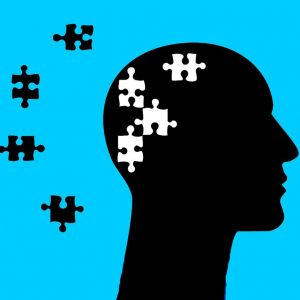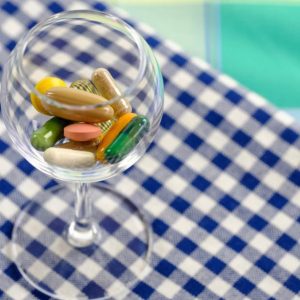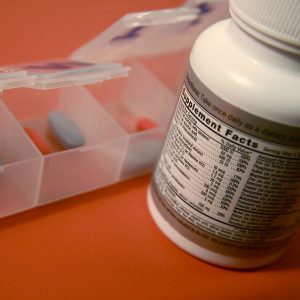Insulin in the Brain: Emerging Therapies for Neuropsychiatric Disorders
Insulin is a peptide hormone produced by the beta cells of the pancreas. It regulates metabolism by promoting the absorption of glucose from the blood into the liver, fat and skeletal muscle cells. When the blood glucose level is high, the beta cells secrete insulin into the blood, and when glucose levels are low, the secretion of insulin is inhibited. If the pancreas produces little or no insulin, it results in type 1 diabetes, while insulin resistance – a condition in which cells fail to respond normally to the insulin – is characteristic of type 2 diabetes. Insulin signaling in the brain The brain...
The Healing Powers of Your Beliefs
The occurrence of placebo effects has been known for a very long time. A first “trick trial” concerning it took place in the late 1500s when instead of holy water, ordinary water was placed in a religious flask and given to a girl who was said to be possessed by the devil – which caused her to contort in pain. Likewise, when priests read a Latin text to the women, misinforming her that it was the Holy Scripture (while in actuality, it was Virgil’s Aeneid) she nonetheless squirmed in agony [1]....
The importance of vitamin D intake when sunlight is scarce
When exposed to UVB-radiation, the human body produces vitamin D out of cholesterol. Vitamin D is therefore also known as the “sunshine vitamin”. Healthy vitamin D levels in people are thought to play a role in preventing several health problems, such as cardiovascular diseases, osteoporosis, mood disorders, diabetes and other autoimmune diseases [1]. In most western countries, the beneficial effects of vitamin D are well-established. Pregnant women are even advised to add vitamin D supplementation to their diet to stimulate fetal growth [2]...
Should Micronutrient Treatments be Recommended based on Existing Nutrient Levels?
I have noticed a growing number of companies offering to measure nutrient levels and then offering a personalized treatment approach to address deficiencies identified. I have also been sent individual blood results from members of the public and asked whether the results can be used to direct the best treatment. Others contact me and tell me their nutrient levels are “normal” so their doctor told them there was no need for additional nutrients. It is a reasonable question because there are many studies that suggest that people with psychological problems such as ADHD have lower levels of nutrients in their...
How Does Participating in a Clinical Trial Work?
Meet Tim: he is an 8-year-old boy, living in the Netherlands with his parents and younger sister. A couple of years ago, Tim was diagnosed with Attention Deficit Hyperactivity/Impulsivity Disorder (ADHD). His psychologist recommended to participate in the TRACE study: this study examines the short- and long-term effects of dietary treatments in children with ADHD. In addition, the TRACE-BIOME study examines the underlying mechanisms of a dietary treatment. For this, we collect blood, stool and saliva samples and we perform a fMRI. These measurements might, among other things, shed light on the role of the brain-gut-axis. But what’s it like...
Feeding the Brain Under High Stress
When we are under high stress, we can often reach for foods that are “comforting” (like cookies, donuts, cake, pastries, and chocolate bars), but these foods may not be the best choice for feeding your brain under stressful and demanding circumstances. Comfort foods are often calorie-rich but nutrient-poor. Further, under high stress (and it doesn’t actually matter what has caused the high stress, whether it be a natural disaster like an earthquake or fire, or witnessing something really traumatic), the reactions our body goes through can be quite similar. We release adrenaline. This is part of our natural alarm response...
Eating Under Stress
Stress tends to mess with our eating habits. In times of stress, some people eat more, while others eat less. The type of food people eat also changes: compared to non-stressed individuals, stressed individuals more often eat unhealthy foods. Laboratory experiments have shown that stress causes people to make unhealthier food choices. In a typical experiment, participants are exposed to an acute stressor, for instance, they are asked to present themselves before strangers, or to solve a very difficult puzzle within an unrealistically short timeframe. Unknown to the participants, the most important part of the experiment takes place during the...
Depression, aggression, and Vitamin B1 thiamine supplements as a new treatment
What is vitamin B1 (thiamine)? Thiamine, which is also known as vitamin B1, is an essential micronutrient, which is required for metabolism, enzymatic processes and conduction of nerve signals. All living organisms use thiamine, but it can be made only in bacteria, fungi and plants. In humans, gastrointestinal microbiota also produces thiamine, but not enough for the organism functioning. Thus, we, as well as other animals must obtain vitamin B1 from the diet. Thiamine deficiency Deficiency of thiamine can affect the cardiovascular, nervous and immune systems. A severe and chronic form is known as beriberi. Wet beriberi affects the cardiovascular...
Continued micronutrient treatment associated with long-term ADHD symptom improvements
Children with ADHD who keep taking micronutrients over one year are mostly in remission in their symptoms with no side effects. The results from a University of Canterbury (UC) study into the longer-term effects of micronutrients on ADHD symptoms in children was recently published in the [1]. This study was led by Dr. Kathryn Darling at the Mental Health and Nutrition Lab in Christchurch (under the supervision of Eat2BeNice Scientist Julia Rucklidge) and looked at the long-term effects of a broad-spectrum micronutrient (vitamins and minerals) in attention-deficit/ hyperactivity disorder (ADHD) treatment...
Facets of Impulsivity: Differences Between Patients with BPD and ADHD
Facets of impulsivity – Differences between patients with BPD and ADHDIt’s more than likely you have done it before, said something reckless you later regretted or sent a quick and rude response to an email with annoying content. It means that you acted impulsively, or in other words, you had a rapid and unplanned response without appropriate foresight. If your impulsivity is persistently expressed, it can be really risky and maladaptive. However, there may have been situations in which your impulsive behavior paid off and could serve a good purpose. Has it ever occurred to you that a quick response...









